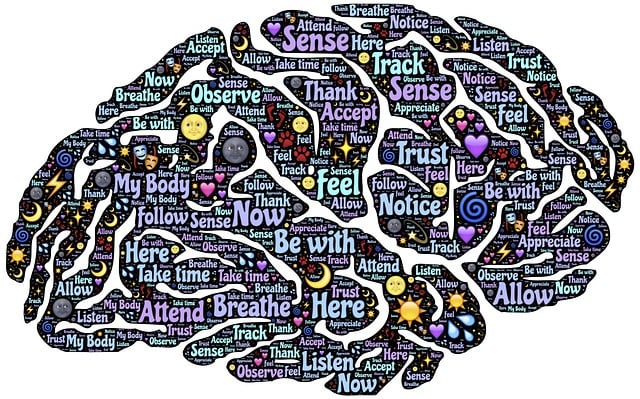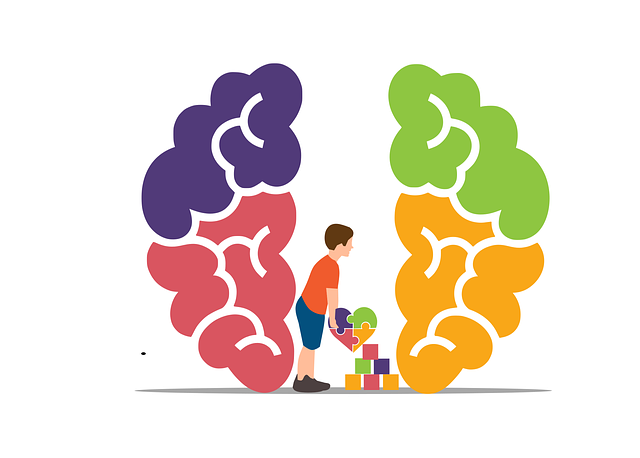Diagnosing mental health issues in young children is challenging due to their developing brains and limited communication skills, leading to misdiagnosis or delayed treatment. To improve accuracy, gender-affirming care offers a supportive environment encouraging open dialogue about emotional states, while therapy for young children, such as social skills training and stress management techniques, serves as an early intervention strategy. Mental wellness podcast series educate parents on recognizing child distress signals, promoting timely professional help-seeking behaviors. Recent advancements in gender-affirming care have significantly enhanced mental health diagnosis accuracy, creating safe spaces to understand conditions like depression or gender dysphoria better. Organizations integrating these inclusive practices can improve their services and contribute to effective depression prevention strategies for all children.
Mental illness diagnosis accuracy among young children remains a complex challenge. This article delves into several key areas aiming to improve diagnostic reliability, including understanding the unique challenges faced by young children, exploring the benefits of gender-affirming care, highlighting innovative therapy approaches for early intervention and accurate assessment, and emphasizing the importance of building supportive ecosystems within communities. By integrating these strategies, we can enhance diagnosis and care for vulnerable youth.
Specific focus on therapy for young children and gender-affirming care underscores the comprehensive approach needed to address this pressing issue.
- Understanding the Challenges of Mental Illness Diagnosis in Young Children
- The Role of Gender-Affirming Care in Enhancing Diagnostic Accuracy
- Innovative Therapy Approaches for Early Intervention and Accurate Assessment
- Building a Supportive Ecosystem for Improved Diagnosis and Care
Understanding the Challenges of Mental Illness Diagnosis in Young Children

Diagnosing mental illness in young children presents a unique set of challenges. The developing brains and limited communication skills of young kids can make it difficult for professionals to accurately assess their emotional and psychological states. Many mental health disorders, such as anxiety, depression, or trauma, may manifest differently in children compared to adults, leading to potential misdiagnoses or delayed treatment. Additionally, societal biases and stigma surrounding mental illness can impact the way children receive care, often resulting in a lack of specialized services tailored for their age group.
One promising approach to improving diagnosis accuracy is gender-affirming care. By providing supportive environments that respect and validate a child’s sense of self, professionals can foster open communication, making it easier to identify and address mental health concerns. Therapy for young children, including social skills training and stress management techniques, can also be instrumental in early intervention. The development of comprehensive mental wellness podcast series production targeting parents and caregivers can further educate them about recognizing signs of distress in children, encouraging timely seeking of professional help.
The Role of Gender-Affirming Care in Enhancing Diagnostic Accuracy

In recent years, there has been a growing recognition of the importance of gender-affirming care in enhancing mental health diagnosis accuracy, particularly for young children. This approach, which involves providing therapy and support that aligns with a child’s self-identified gender, can significantly improve diagnostic outcomes. By creating a safe and affirming environment, healthcare professionals can better understand a child’s experiences and symptoms, leading to more precise diagnoses of conditions like depression or other gender dysphoria-related issues.
Gender-affirming care encourages open communication and embraces the individual’s perspective, which is crucial for accurate assessment. This method not only helps in diagnosing specific mental health disorders but also aids in developing tailored treatment plans. Moreover, integrating such practices can reduce stress and anxiety among young patients, as they feel more understood and supported. Organizations offering Stress Reduction Methods, including Stress Management Workshops, can benefit from adopting these inclusive approaches to enhance their services, ultimately contributing to improved Depression Prevention strategies for all children.
Innovative Therapy Approaches for Early Intervention and Accurate Assessment

Innovative therapy approaches are transforming early intervention and accurate mental illness assessment, especially for young children. One promising method is gender-affirming care, which has shown effectiveness in treating gender dysphoria and related conditions. By creating supportive environments that align with a child’s affirmed gender identity, therapists facilitate their emotional well-being and reduce the risk of burnout or trauma that often plagues traditional therapy methods.
Early intervention is crucial in mitigating the impact of mental illness, and innovative approaches like these are essential in breaking down barriers associated with stigma. Gender-affirming care, for instance, challenges societal norms and promotes understanding, ensuring young individuals receive appropriate support without fear of judgment. Furthermore, these progressive practices encourage healthcare providers to adopt burnout prevention strategies, such as incorporating self-care practices, to ensure they can continue offering quality mental health services.
Building a Supportive Ecosystem for Improved Diagnosis and Care

Creating a supportive ecosystem is pivotal for enhancing mental illness diagnosis and care, especially for vulnerable populations like young children. This involves fostering an environment that encourages open conversations about mental health, reduces stigma, and promotes access to specialized services. By integrating therapy for young children into mainstream healthcare settings, professionals can identify and address mental health concerns at an early stage. Implementing gender-affirming care is another crucial aspect, ensuring that diagnosis methods are inclusive and respectful of diverse identities. This approach not only improves the accuracy of diagnoses but also encourages individuals to seek help without fear of judgment or misalignment with their true selves.
Furthermore, building a robust support system includes prioritizing the well-being of mental health professionals themselves. Effective risk management planning is essential to mitigate burnout, which can negatively impact healthcare providers’ decision-making abilities and patient outcomes. Integrating stress management techniques and burnout prevention strategies into professional development programs empowers healthcare workers to navigate challenging situations while maintaining optimal performance. This holistic approach ultimately contributes to a more accurate and compassionate mental health care system.
Mental illness diagnosis in young children remains a complex challenge, but through innovative approaches like gender-affirming care and early intervention therapy, significant improvements are achievable. By fostering a supportive ecosystem that incorporates these advanced practices, we can enhance diagnostic accuracy and ultimately improve the lives of affected children. Specifically, focusing on therapy for young children within this framework ensures comprehensive care tailored to individual needs, leading to better outcomes.














